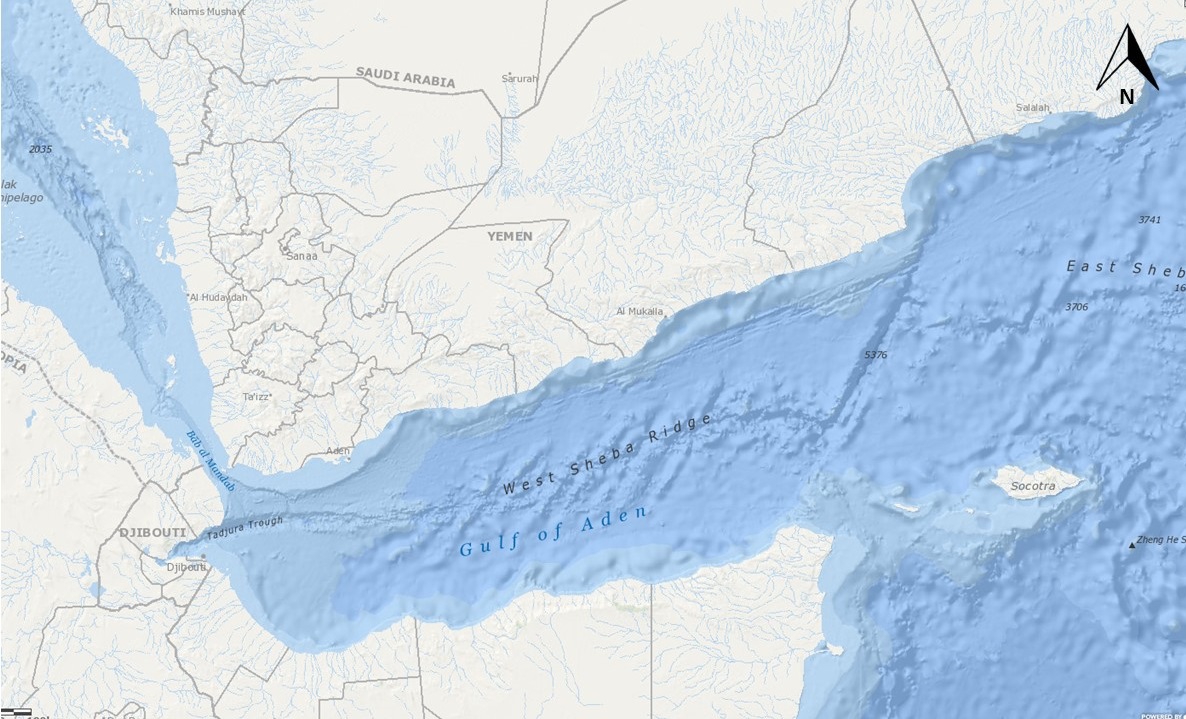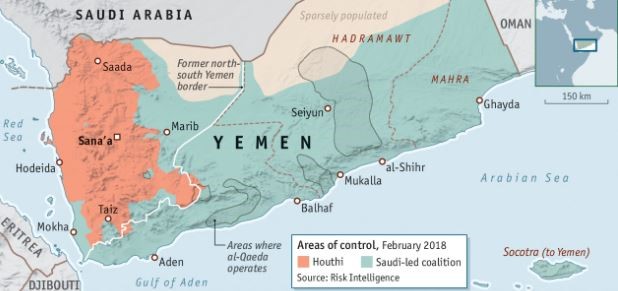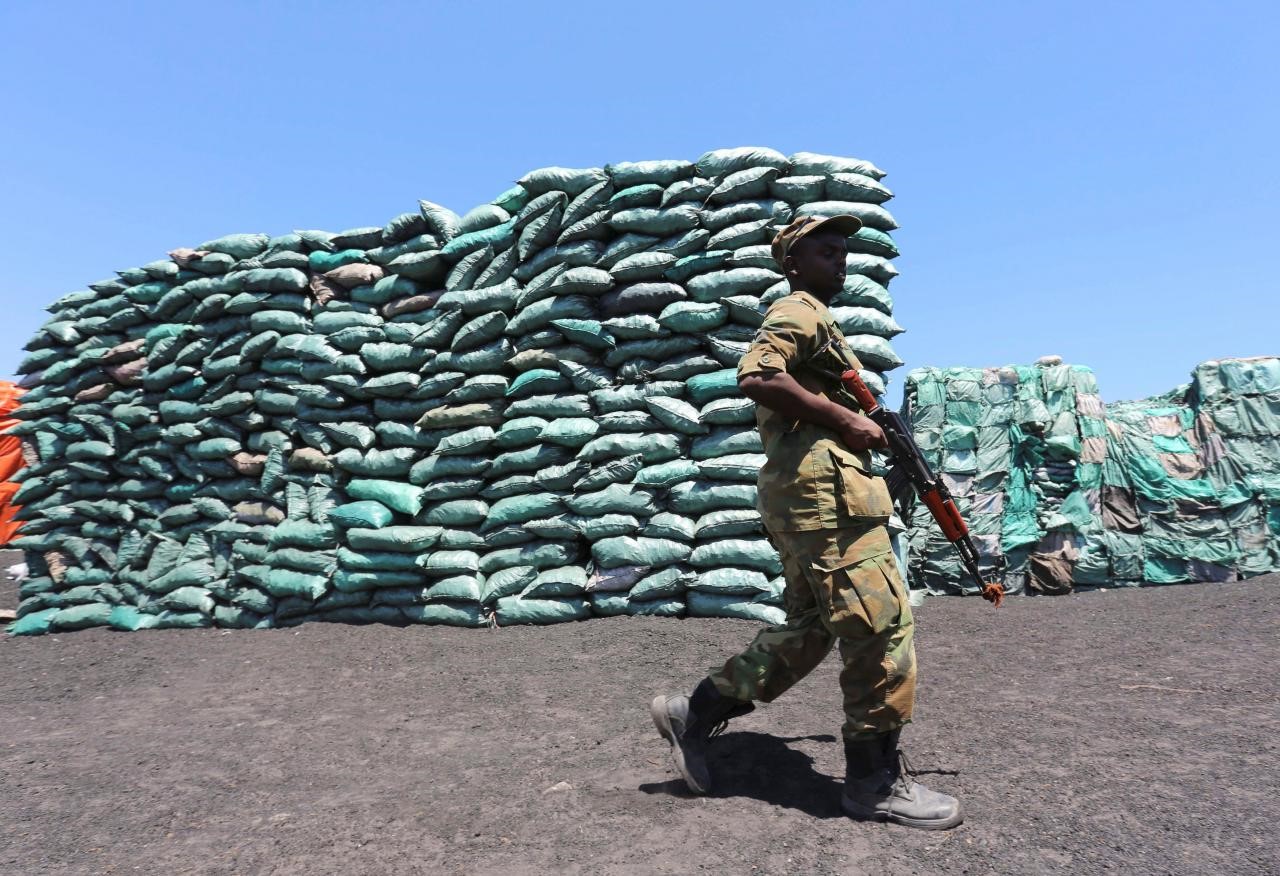Indian Ocean HRA
Overview
- No incidents reported in the High Risk Area during the reporting period.
The tactical situation across the Indian Ocean High Risk Area (HRA) remains low in terms of the threat of piracy, there have been no confirmed incidents issued by the UKMTO since July 2018.
Throughout August 2018 the conflict in Yemen continued to threaten the maritime domain. This in turn illustrates that the High Risk Area remains vulnerable to not only piracy but also violence on land threatening major shipping routes. The current assessment is that piracy attacks will remain sporadic and at a low level along with rebel/terrorist groups continuing to conduct attacks in the region for the foreseeable future.
Adverse weather conditions continue to influence the Indian Ocean, piracy operations are therefore more likely to occur in more sheltered areas such as the Bab-el-Mandeb strait and Gulf of Aden where skiffs are able to operate with more ease. Reports have indicated that Somali pirates may use the monsoon as cover for attacks against merchant ships in areas such as the Gulf of Aden where weather conditions are not as severe.
Reported Incidents HRA
No incidents to report during the reporting period (UKMTO)
Yemen
Hodeidah Offensive
Hodeidah port continues to be operational as the offensive pushes further into the city of Hodeidah. This is likely to disrupt port operations. It is estimated over 900,000 people are in desperate need of humanitarian assistance in the Hodeidah governorate alone. The port serves approximately 80% of Yemen’s imports making it a critical port for aid supplies to enter the country. This week, Hodeidah city and surrounding districts have been hit by heavy strikes through the week. Civilians in Hodeidah describe a notable increase in airstrikes and frequent, low-hovering fighter jets over the city. Frontlines along the city’s edges have not changed significantly in recent days.
The conflict in Yemen has introduced additional maritime security threats, other than piracy, to the Southern Red Sea and Bab al-Mandeb. These include collateral damage due to the conflict between local groups and a potential deliberate targeting of vessels. The security situation and corresponding security advice to vessels calling at Yemeni ports may therefore change at any time.
Latest disruption to Hodeidah port
It is reported by the Swedish club and the Chairman of the Higher Committee for Relief that Houthi militia is holding 10 oil and commercial vessels in the port of Hodeidah, preventing them from unloading their cargo, while some ships have been detained for nearly 6 months. The Minister of Local Administration pointed out that this deliberate action by the Houthi militias, along with imposition of higher levies up to 60 percent on the oil products, have resulted in a supply crisis in oil derivatives and strengthened the black market that benefits pro-militia traders.
EU NAVFOR and CMF access that the ongoing conflict in Yemen, given its unpredictability, will continue to spill over into the maritime domain in the future. However it is still assessed that Saudi-led-coalition military vessels will remain the primary target for attacks: it is considered unlikely that merchant vessels will be deliberately targeted. In spite of this, there will continue to be a risk of collateral damage/misidentification.
Somalia
Al Shabaab continue to be increasingly active in Somalia, maintaining strongholds in southern and central Somalia. The terrorist group continue to carry out attacks against military and civilian targets.
Somalia is a country whereby tribal loyalties are stronger than national ties which have hindered efforts to strengthen unity. Terrorist groups and clan divisions mean that the SFG and Somali forces lack legitimacy outside of Mogadishu. Further to this, al Shabaab further exemplifies the issue of famine, terrorism and corruption making the prospect of stability in Somalia in the near future bleak. Al Shabaab is likely to maintain its present operational tempo in 2018 which leaves huge challenges facing Mogadishu meaning international efforts to stabilise the country will continue for years to come.
Al Shabaab claims to have executed five men spying for British, US and Somali intelligence
The East African jihadist faction announced via radio that the killings had taken place in a public square in Jilib, a town in the Middle Jubba region, central Somalia. It was reported that eyewitnesses saw the men tied to poles and shot by firing squad. The UK, US and Somali governments have not yet responded to the reports.
Piracy Activity:
The security situation across Somalia remains unstable. Al Shabaab maintains freedom of manoeuvre in large parts of southern and central Somalia and a footprint in Puntland close to Bosasso. Until the deep rooted issue of piracy in Somalia are resolved, piracy will continue to be a threat. In recent times Somalia has suffered some of the worst famines in 40 years, this coupled with the struggling government and extreme militant violence has brought millions of people into crisis. Pirate financiers capitalise on the chaos offering opportunities to local people.
Somalia has the second-longest coastline in Africa which is largely unregulated. Pirate groups are known to operate in the coastal regions of Puntland namely Eyl and further south in Galmudug namely Hobyo. It is needless to say, as instability in Somalia continues, it will serve as a permissive environment for piracy operations serving as an ongoing threat to shipping in the region.
The complex security situation facing Somalia creates significant opportunities for criminal enterprises to operate on land and at sea. Although piracy is the most commonly known threat there are a number of other maritime crimes taking place in the area. Criminal groups previously engaged in piracy operations are considered highly likely to have switched to other low risk criminal activities to meet their financial objectives.
UN report highlights Iran as a new transit point for illicit Somalian Charcoal
Criminal networks are using Iran as a transit point for illicit Somali charcoal exports that earn Islamist militants Al Shabaab millions of dollars annually in tax, U.N. sanctions monitors said in an unpublished annual report to the U.N. Security Council.
According to the report domestic revenue generation by Al Qaeda-affiliated Al Shabaab “is more geographically diversified and systematic” than that of Somalia’s federal government. The U.N. Security Council banned charcoal exports from Somalia in 2012 in a bid to cut off funds for Al Shabaab.
In addition to earnings from charcoal, Al Shabaab is making millions of dollars annually via tolls on vehicles in areas where they man checkpoints and through taxes on businesses, agriculture and livestock.



